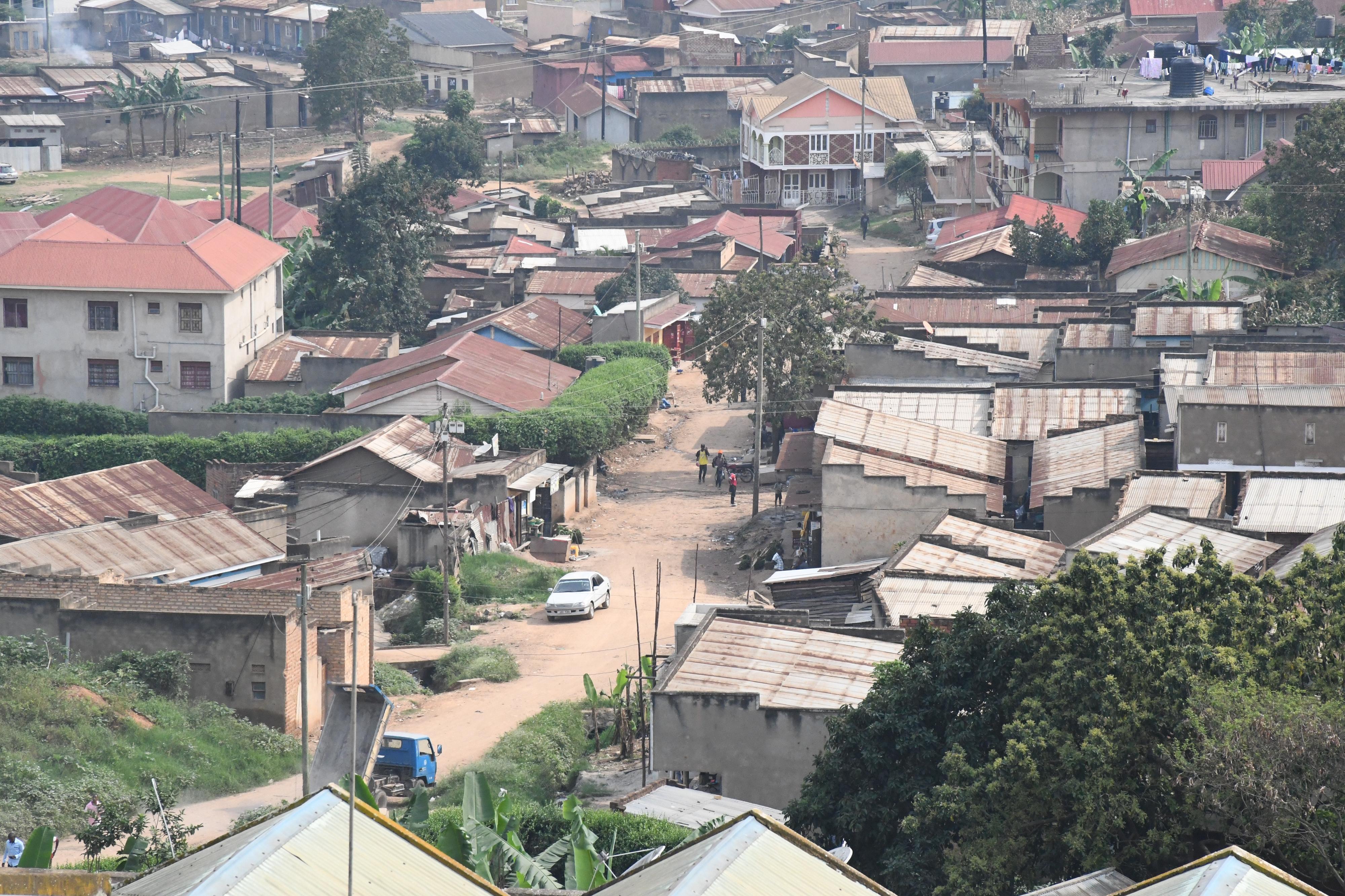Prime
Unregulated real estate sector fuelling city slums, say experts

Kiswahili Cell in Kakoba Ward in Mbarara City, where slums are developing. PHOTO/JULIUS BYAMUKAMA
What you need to know:
- The experts call for urgent action to address the issue in Mbarara.
Mbarara is one of the fastest growing cities in the country, but the lack of proper planning is hindering its development as witnessed by the development of slums.
Over the years, Kampala has struggled to address slum development challenges due to poor planning.
Mbarara seems to have learnt nothing as it is already struggling to uplift the standards of slums like Kisenyi, Biafra, Kijungu, Kajogo, Kiyanja, and Kiswahili.
As the city races with development, there is a growing population, which has resulted in a mad rush to purchase land for building homes and for commercial spaces.
However, the poorly regulated real estate sector has led to unnecessary subdivision of land, whereby some areas now have plots of 50 by 30 feet. A standard plot measures at least 50 by 100 feet.
“These real estate players have become a menace. They have brought estates, especially in semi-rural areas, they subdivide these estates to very tiny plots,” Mr Jomo Mugabe, the Mbarara City South Division mayor, said.
He said real estate brokers and corruption by some of their staff have worsened the problem.
“We appeal to the government to allocate more resources for planning so that we recruit more staff and have the city physical planning master plan in place,” he said.
The Mbarara City South Town Clerk, Mr Didas Muhanguzi, said :“We have engaged local leaders including LCs, councillors and opinion leaders that we cannot have well-planned-smart cities without proper physical planning. One of the issues we have to regulate is the selling of small plots,” he said.
Mr Muhanguzi also said technocrats have asked leaders not to sign land sell agreements for small plots.
“But the challenge here is that these real estate companies are now using lawyers to exploit the situation, but we are also going to engage them to see if this stops,” he said.
Possible solutions
Mr Chris Baguma, the chairman of Kamukuzi Cell in Mbarara City, accused city authorities of sidelining them when drafting the city’s physical planning regulations.
“They tell us not to sell plots of below 50 by 100 feet and those that are in areas planned for infrastructure developments like roads, but we get confused because we at times don’t know the places gazetted for infrastructure development,” he said.
Mr Baguma added: “Let authorities first open up these roads but not only have plans on paper. There is a mad rush for land and everyone wants to build if there is no strict enforcement on physical planning then more slums will come up.”
Mr Goddie Kwizera, Mbarara City’s economic planner, attributed the issue to weak enforcement of regulations and a shortage of manpower.
“Most of the time what we plan is rarely implemented, so you find even locals constructing buildings contrary to the physical development plan. Anyone constructing any building should have a plan but people no longer respect our rules and laws. You find someone is building a flat, a school when they have not consulted physical development planners of the city,’’ he said.
Mr Kwizera added: “Physical planning will now be our priority so that we have a detailed physical development plan to include opening right of ways and mapping of streets, plans for recreation centres, and improve city enforcement. We have also put a by-law to stop the sale of substandard plots.”
What other players say
Mr Daniel Arinda, the chief executive officer at Africus Real Estates, said:“Subdivision of plots means that there would be very many homesteads and normally that comes with a lot of disadvantages as the city is planning, the electricity that is supplied in the area becomes less.For instance, a transformer that is meant to be serving, let’s say 200 homesteads then is now serving about 600 homesteads,” he said.
He said the city council should improve on enforcement against the sale and development of substandard plots.
Mr Herbert Tushabe, a resident, said the real estate market in Mbarara City needs to be regulated.
“Like any other business real estate needs to be regulated and formalised. But as of now, anyone who gets money joins the sector, which is why we have problems. We have issues of people selling small plots,” he said.
Mr Tushabe added: “There are laws and standards to follow in land markets and real estate business but are always not followed. The real estate sector can grow if managed and done professionally.”




